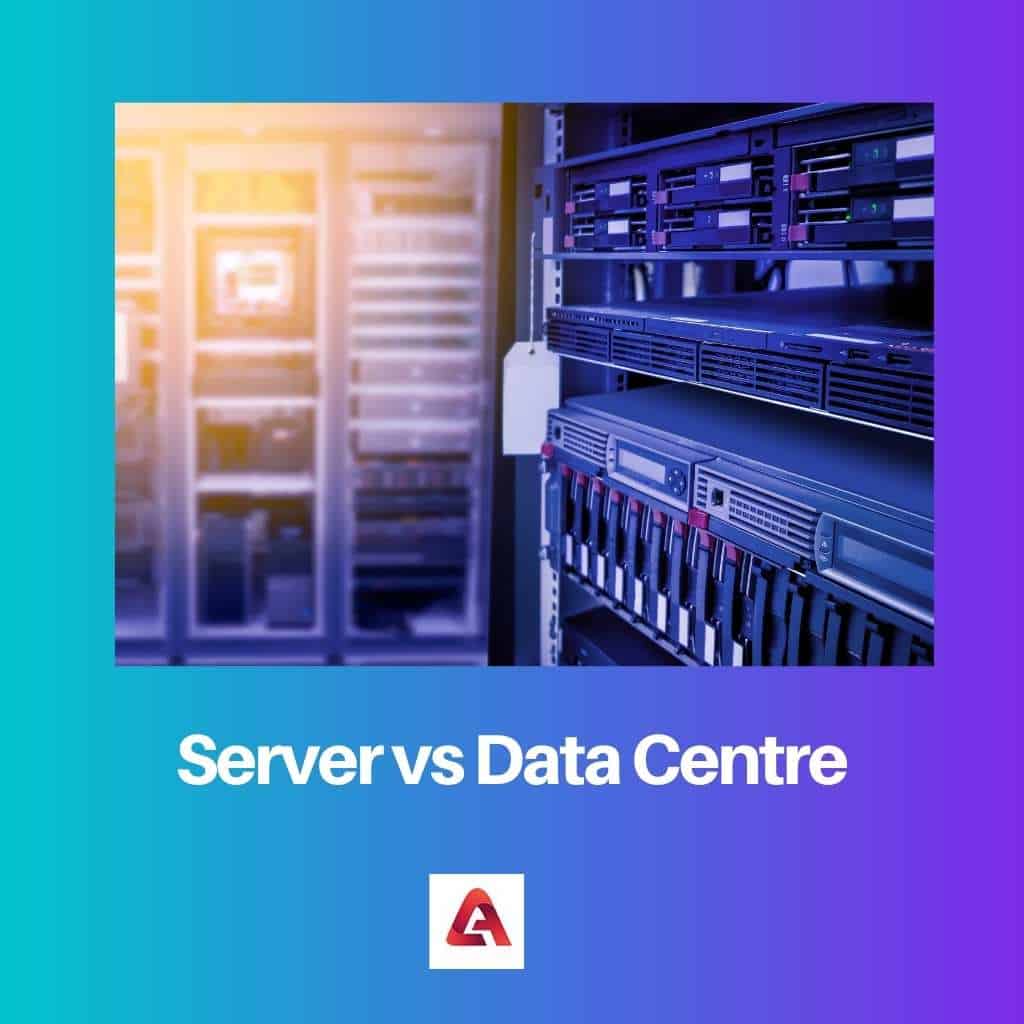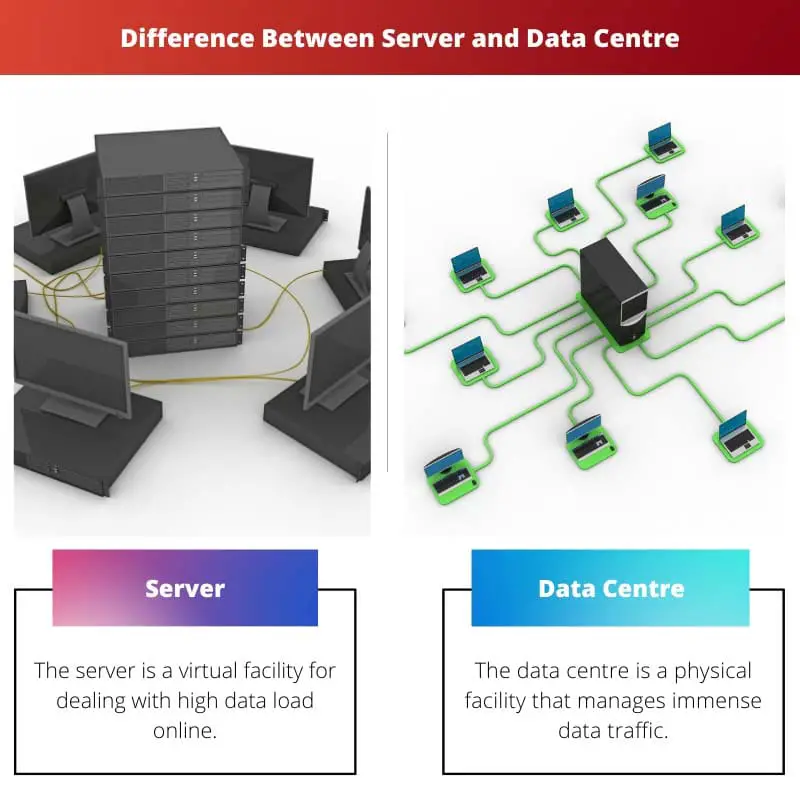While we deal with a lot of data, we yearn for a secure and compliant server or data center. A server or a data center offers high performance, better security, and massive storage to safely store the data.
Here, the two names might be offering the same function of storing the data, but their way of functioning makes them different.
Key Takeaways
- Servers are powerful computers that manage network resources, process data, and host websites or applications.
- Data centres are large, secure facilities that house multiple servers, network equipment, and backup power supplies.
- Servers perform specific tasks within a network, while data centres provide the infrastructure to support multiple servers and ensure their reliable operation.
Server vs Data Centre
A server provides virtual storage for data. It can be a computer or a group of computers. It also helps in managing data. Huge amounts of data can be stored on servers. A data center is a physical storage where data can be stored. Data processing companies can have data centers where they can store large amounts of data.

Servers are the best options to deal with data-heavy websites, handling shared drives of companies or dealing with online queries.
Servers take over traditional computers in dealing with intensive online workloads. Hence, servers offer stability, efficiency, and continuity to the businesses and software to function smoothly.
Enterprises or companies deal with a wide range of data and manage thousands of employees distributed worldwide. Enterprises need a physical database like a data centre to collect such continuously flowing data.
Data centres offer quick and reliable services and save enterprises from losses.
Comparison Table
| Parameters of Comparison | Server | Data Centre |
|---|---|---|
| Type | The server is a virtual facility for dealing with high data load online. | The data centre is a physical facility that manages immense data traffic. |
| Function | Servers help in effortlessly dealing with online data traffic. | Data centres store critical applications and data of different enterprises. |
| Core Components | Servers are computers with high-efficiency capabilities. | Data centres have different physical infrastructures, including network infrastructure, storage infrastructure, and computing resources. |
| Size | The servers are small, as it is a computer or a network of computers. | Data centres are dedicated buildings with categorised sections. |
| Data quantity | Servers deal with and stores data in small quantities compared to data centres. | Data centres are found mainly in bigger companies like data processing companies. |
What is Server?
For any business, it’s hard to handle incoming or existing data with care. The data are sensitive and prone to theft, so it requires better handling and security.
Hence, a server is responsible for storing, process, manage network data with utmost care.
The server can be defined as an advanced computer that helps smooth data handling. Servers are the engines that provide different organisations with network devices and systems with sufficient resources.
A server improves a business’s scalability, efficiency, and performance with all these features.
A server has a more significant role in businesses, as it helps them run smoothly. A server easily stores and handles increasing data in a company or organisation.
A server helps in keeping the system online throughout the working period. Moreover, a server reduces buying cost of additional network devices to manage data.
A company’s server works on a simple principle or path, i.e., host- server-client. The server that powers the other devices present in the network is called a host server.
Servers that process the data to the client work as a middle man between host and client. The in-network devices which receives the data are called the clients.

What is Data Centre?
With over seven billion people online, data centres are tasked to handle all the online data in physical storage smartly. The data centres can store the complete online data of a multinational company.
Hence, the data centres are the most reliable and convenient data handling units for an organisation.
The data centre is a building or a room that stores all the critical applications and data of an enterprise. The different components present at a data centre are routers, switches, servers, storage systems, and application controller devices.
All these components work combinedly in managing data with security.
The data centres have a versatile role that benefits companies in multiple ways.
The data centre design facilitates different business applications and activities like email and file sharing, productivity application, CRM, AI, virtual desktops, communication, etc.
Hence, the bigger entities that mainly deal with data opt for data centres over servers.
A data centre is categorised into multiple units, including network, storage, and computing infrastructures. The network infrastructure connects the physical servers with virtual servers.
The storage server stores all the received data in folders for future use. The computing infrastructure helps in processing, memory, and network connectivity required to drive applications.

Main Differences Between Server and Data Centre
- The biggest difference between the two data storage units is their working platform. The server is a virtual facility that facilitates smooth and secure data dealing. In contrast, the data centres are the physical facility that can store and deal with continuously flowing data.
- The role of a server can be different with different enterprises, but it deals with online data, like dealing with online queries. In contrast, the data centre stores and handles heavy data influx.
- Servers are the advanced version of traditional computers. The servers are highly efficient and data responsive computers. In contrast, the data centres have different core units like network infrastructure, storage infrastructure, and computing resources.
- The servers help small businesses, software, or less data-dealing companies. In contrast, the data centres can handle data-driven companies and store data of any organisation.
- A server is small compared to data centres, but it offers better performance, security, and high speed while dealing with data. In contrast, the data centres have physical buildings to store data with dedicated units.

